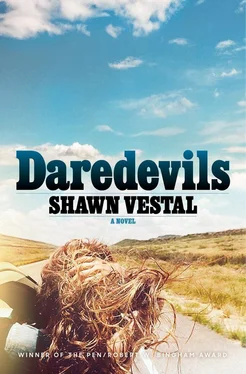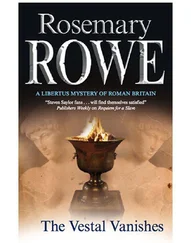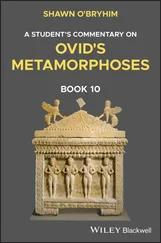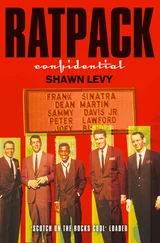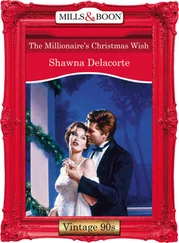• • •
She waits for the sound of Bradshaw’s truck in the drive. She is in her nightdress, the thick cotton over the temple garments — the silky two-piece underwear with the markings at the nipples and the belly, the garments she was given upon her marriage and which she is to wear at all times. It occurs to her that she could take them off.
She answers when the knock comes, and when she sees him again, like this, unguarded and not pretending, he is too much. Hungry grin, twittery eyes of ice, almost turquoise. One hand high on the doorjamb, one on his hip, one foot forward and one back, his Wranglers long at the boot heel and the arms of his pearl-button shirt cut short and fraying, and his hat, bill curled tightly and worn through at the front edge, bearing the words “Sandy Excavation” in lariat script.
“Darlin’,” he says. “Sweet Lori,” he says, and he is upon her.
He kisses her face off. He kisses her like he’s trying to eat something. Her lips go raw, her jaw aches. He puts his hands everywhere. She likes it but she doesn’t. It feels half like he’s trying to hurt her. She holds his back, recalls how tightened with muscle it is, compared to Dean’s thick, spongy flesh. She starts to push him away, and says, “Stop, stop, slow down,” and it takes her a long time to wake him from the fever, and when he finally does he looks at her in pain and disbelief, groans and rolls to the corner of the couch, and wails. “Lori,” he says, begging. “Lori.”
Whether she wants it or not seems like the wrong question. Bradshaw is handsomer than Dean, funnier, younger, better in every way, and she would rather do this with him than with Dean. But it is not a choice between Bradshaw and Dean. It is a choice between now or later. Between Bradshaw or Dean or something else entirely. She could do it. Easily. She could do almost anything now. You hide inside yourself, and whatever happens out there still happens, but you’re less there, you’re enough not there that you can keep talking to yourself, telling yourself whatever you’ve decided to tell yourself, until it’s done.
She says, “Not like this, baby. I want it to be right. To be us, somewhere else, living our own life. Not here. Not in Dean’s house.”
Bradshaw groans and holds his head in his hands as though he has been struck in the face. Loretta could not care less about the moment or the place. But she understands that this is a thing he would expect her to care about.
She could just give in. That would make Bradshaw happy. It might even make her happy. But none of that matters — not her desire, not his desire, not this man or that man, not being married or being free, not whether she wants to or not.
It is only about the choosing. Nothing else. The choosing, and that it be hers.
• • •
Later, when he’s got his smile back, he tells her, “Well, hon, I’m sorry but there ain’t any money.”
Dean called in everything before he left town, got all the accounts in order. He had been settling up with Bradshaw once a week, and taking Bradshaw’s word about a couple of “late payments,” and generally had allowed Bradshaw to create pockets of uncertainty in the cash flow. But that was over now, and Bradshaw had to give over all the money he had squirreled away off the top of the payments to Zion’s Harvest.
“Didn’t have no choice. But this thing of Dean’s is exploding. Sales off the freaking charts. When things settle down again, it’ll be nothing to skim off… I don’t know….” He acts like he’s calculating in his head. “A lot, baby. A shitload.”
A love of money is the root of all evil. It is easier for a camel to pass through the eye of a needle than for a rich man to enter the kingdom of heaven. Your gold and your silver have rusted, and their rust will be a witness against you . Loretta has heard these words all her life, and she has always wondered: How could you not love money? Is it even possible?
He’s not even trying to talk her into it now. He wants to wait for the money, too.
EVEL KNIEVEL ADDRESSES AN ADORING NATION
The taverns. Oh, the taverns. The Muddy Bumper in Reno. The Silver Pony in Baker. The Mint in every Podunk Montana town. The little-town bars. The dusty afternoon light, thrust through the bar dark in thick planks. The freak-show glow of the egg jar, pickling in amber, and the sharp bite of a seventh cigarette. The Rockin R in Bozeman. John’s Alley in Moscow. The Dry Dock in Moses Lake. The little-town taverns, unannounced. Walk in, await an audience, watch the night grow. Buy rounds, unscrew the top of the cane, drain the Wild Turkey. Wink at the best-looking gal first chance you get. The Sports Page in Pocatello. The Bawdy Dog in Orem. The Baby Bar in Spokane. The Stockmen’s in Elko. People pressed around us so tight we felt their heat, their life, pouring into us. We walk in, and wait for the eyes to turn, for the looks to begin, for the approach and the surprise — their thrill when we sit with them, share ourselves, their glorying in us — and the delivery of the best kind of love, the only kind of love: wild, momentary, complete.
September 1, 1975 GOODING, IDAHO
Jason’s dad sits in the high cab of the tractor, pulling the baler as it spins the cut hay into its mouth and spits out a trail of tightly twined rectangles. Jason and Boyd swap between bucking bales onto the flatbed and driving the truck. They should finish by nightfall. Finish for the day, finish for the season, finish forever. That’s what Jason is thinking, that this will be his last day of this, ever, and that now that school is starting, his senior year, everything will be the last of its kind, the final one. Next year, he’ll be eighteen, a high school graduate, and gone. The thought gets him through it all: the throb in his temples, his pasty mouth, the ache in his shoulders.
The day is spangled, wincingly bright — white-gold fields, a haze of dust. They have been haying behind Grandpa’s place, by the falling-down gray shack and the old tractor grown through with weeds. They stop for lunch. Jason and Boyd eat in the truck cab, drenched in sweat and daubed with hay dust, while Dad clears weeds from the teeth of the baler.
They eat quietly until, across the field, they see Dean emerge from the back door of the house and lope to the shed. Everyone else left not long after the funeral, but Dean and his family stayed, without explanation. Now a pickup truck and a horse trailer packed with boxes are parked in the drive.
“Are they moving here?” Boyd asks.
“I don’t know.”
“They look like they’re in some pioneer movie.”
Jason feels an odd impulse to defend them. The ugly tether of family.
“What are they, like, square dancers?” Boyd asks.
“Probably.”
“Do they spin wool into thread? Can they churn butter?”
“I’m sure they can churn amazing butter.”
Jason’s parents have been deeply uninformative about the situation. His father has been particularly terse and dismissive, pretending he’s surprised anyone might be interested in what Dean is doing. Across the field, Dean emerges from the shed and strides to the horse trailer. Ruth comes out from the back door, and begins pulling down what seems like one hundred pairs of overalls from the clothesline, two kids romping at her feet like puppies.
“Spectacular butter,” Jason says. “You’d want to rub yourself all over with this butter.”
It is so hot it no longer feels hot. Jason’s mouth is furred, no matter how much warm water he chugs from the thermos. He sinks drowsily into the soft, springy seats, closes his eyes, wonders how quickly they will make it through the final windrows. Four more hours? Five?
Done forever.
Читать дальше
